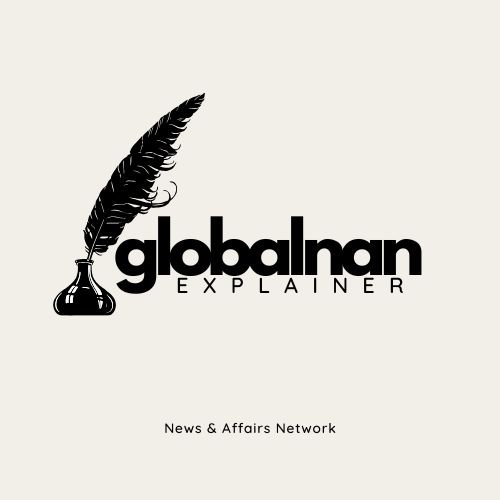
Report by globalnan.com
In a recent column, Rafia Zakaria, an attorney teaching constitutional law and political philosophy, presents an analysis that last week, former US President Donald Trump’s visit to the Middle East was marked not only by diplomacy but also by a significant push from American tech leaders, including Elon Musk, OpenAI’s Sam Altman, Nvidia’s Jensen Huang, and Palantir’s Alex Karp. These CEOs engaged with the rulers of Saudi Arabia, the UAE, and Qatar, culminating in major multibillion-dollar deals that reinforced America’s position both economically and geopolitically. As Zakaria explains, “Trump loves best: the announcement of multibillion-dollar tech deals for US companies,” highlighting the centrality of capitalism in these efforts.
At the heart of this diplomatic-economic blitz was a landmark agreement between OpenAI and Abu Dhabi to establish one of the world’s largest artificial intelligence hubs, with an investment of up to $500 billion. The facility is set to span 25 square kilometres and will require energy equivalent to five nuclear reactors. Zakaria underscores that while “money was at the heart of all this,” the deal also represents a strategic victory for the US in its ongoing competition with China over AI supremacy.
This massive AI hub in Abu Dhabi is part of OpenAI’s Stargate project, which aims to create similar centres globally. The project involves cooperation with G42, a major UAE-based tech conglomerate. However, trust issues complicated the partnership: in 2023, the CIA flagged concerns due to G42’s previous leadership under a Chinese-origin executive and its alleged ties to Chinese intelligence agencies. Zakaria notes that “the US had not trusted G42 with OpenAI’s pioneering AI technology” until the company’s new CEO announced that it had “almost entirely divested from China.” This shift cleared the path for the US to move forward with the Gulf states, resulting in what Zakaria calls a “strategic victory” when Trump visited Abu Dhabi.
With China’s influence diminished in the equation, the Gulf countries, particularly the UAE, are positioning themselves as regional AI leaders. Saudi Arabia and Qatar have also made separate deals with American tech firms, creating a growing AI hub in the Middle East. This ambition reflects the Gulf rulers’ hopes that AI will play a transformative role across their economies and societies.
One critical impact of this AI push is on the region’s migrant workforce. The UAE alone hosts a vast guest-worker population engaged in a wide range of jobs, from low-skill construction labour to high-skill technology and engineering positions. Zakaria warns that the AI revolution could drastically reduce the Gulf’s dependence on these workers. She writes, “Jobs such as those of cashiers, data entry clerks, truckers and delivery people on the low-skilled end will vanish in the AI-led future,” and even highly skilled roles like software engineers and specialised doctors could be displaced as AI systems outperform humans in coding and medical diagnostics.
This technological transformation poses serious concerns for Pakistan, whose economy relies heavily on remittances from blue-collar and white-collar workers employed across the Gulf. Zakaria points out that these remittances are not only a financial lifeline but also influence societal attitudes towards education and career choices. Although AI development within Pakistan remains limited, Zakaria emphasises that “this is not the case for the global arena where we go to work,” meaning many Pakistanis face a future in which the demand for migrant labour in the Gulf may shrink dramatically.
For decades, Gulf states have viewed migrant labour as a “problem to be solved.” Zakaria argues that “they may have hit upon a solution that serves them well” in the form of AI. As the Gulf countries pursue AI to reduce reliance on foreign workers, the “subcontinental faces” familiar in cities like Riyadh and Dubai may increasingly find their opportunities diminishing. The Gulf’s AI ambitions aim to “reclaim” their labour markets for “true natural-born citizens,” a goal that raises profound questions for countries like Pakistan.
Zakaria concludes by posing a critical challenge: “What will countries like Pakistan do for their citizens in a future where their export to labour markets in the Gulf will become a vastly limited option?” Her analysis highlights the urgent need for Pakistan to anticipate these shifts and adapt to a rapidly changing global labour landscape.

